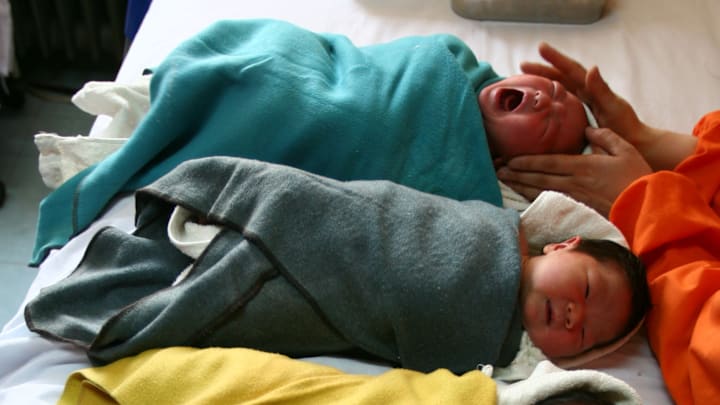The Benefits of Baby Massage

Baby massage is a nurturing practice that involves gently stroking and massaging your baby's body. This practice offers numerous benefits for both the baby and the parent, promoting physical and emotional well-being. Here are some of the key benefits of baby massage and tips on how to get started.
One of the primary benefits of baby massage is the promotion of bonding between the parent and the baby. The close physical contact and gentle touch release oxytocin, often referred to as the "love hormone," which enhances the emotional connection between you and your baby. This bonding experience can help your baby feel secure and loved, which is essential for their emotional development.
Baby massage also supports physical development and well-being. The gentle strokes and movements can help improve circulation, promote muscle relaxation, and support healthy growth. Massage can be particularly beneficial for babies who experience colic or digestive issues, as it can help relieve gas and promote digestion. Massaging your baby’s tummy in a clockwise direction can help alleviate discomfort and improve bowel movements.
Another benefit of baby massage is the promotion of better sleep. The calming and soothing effects of massage can help your baby relax and feel more settled, leading to improved sleep patterns. Incorporating massage into your baby’s bedtime routine can signal to them that it’s time to wind down and prepare for sleep. A gentle massage before bedtime can help your baby fall asleep more easily and sleep more soundly.
Baby massage can also enhance sensory awareness and body awareness. The gentle touch and movement stimulate your baby's sense of touch and help them become more aware of their body. This increased sensory awareness can support the development of motor skills and coordination. Massage can also help your baby feel more comfortable and confident in their body, promoting overall physical and emotional development.
For parents, baby massage offers an opportunity to connect with and understand their baby's cues and signals. The close physical contact and focus on your baby's responses can help you become more attuned to their needs and preferences. This increased understanding can enhance your ability to comfort and care for your baby, promoting a stronger and more responsive parenting relationship.
To get started with baby massage, choose a time when your baby is calm and alert, such as after a bath or before bedtime. Ensure the room is warm and quiet, and use a soft blanket or towel to create a comfortable surface for your baby. Use a small amount of baby-safe massage oil or lotion to help your hands glide smoothly over your baby's skin.
Begin with gentle strokes on your baby's legs and feet, gradually moving to their arms, chest, and back. Use smooth, rhythmic movements and apply gentle pressure. Pay attention to your baby's cues and adjust your touch as needed. If your baby seems uncomfortable or fussy, stop the massage and try again later.
Incorporating eye contact, talking, and singing during the massage can enhance the bonding experience and provide additional sensory stimulation for your baby. Remember to be gentle and responsive to your baby's needs, making the massage a positive and enjoyable experience for both of you.
In conclusion, baby massage offers numerous benefits for both the baby and the parent, including enhanced bonding, improved physical development, better sleep, and increased sensory awareness. By incorporating baby massage into your routine, you can provide your baby with a nurturing and supportive experience that promotes their overall well-being. Enjoy the special moments of connection and relaxation that baby massage brings, and cherish the opportunity to nurture your baby in a loving and meaningful way.